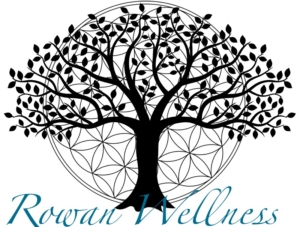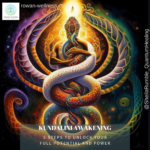Spiritual Awakening Journey
5 Steps to Unlock Your Full Potential and Power
The spiritual awakening journey can be a transformative and enlightening experience. This article will guide you through 5 powerful steps to help you on your path to self-discovery and inner peace. As you read, remember that “one must still have chaos in oneself to be able to give birth to a dancing star.” ~ Friedrich Nietzsche
Spiritual Awakening: What is it?
A spiritual awakening is a profound, life-changing process in which an individual experiences a shift in their consciousness, perception, and understanding of themselves and the world around them. This transformation often results in an increased consciousness of one’s own spirituality and connection to the world, as well as a deeper sense of purpose and inner peace.
People who are experiencing spiritual awakenings may start to doubt their core convictions as they look for deeper significance and the truth. Additionally, they might feel more empathic, intuitive, and united with all living things. A spiritual awakening can be brought on by any number of things, such as a personal catastrophe, a loss, a life transition – all of which might be what’s referred to as a “dark night of the soul” – or just a normal progression in one’s spiritual and personal growth. Although the process and length of a spiritual awakening may differ from person to person, it frequently leads to significant personal development and a rekindled sense of fulfillment in life.
“Your task is not to seek for love, but merely to seek and find all the barriers within yourself that you have built against it.”
– Rumi
Signs & Symptoms of a Spiritual Awakening
Spiritual Awakening rarely happens because we consciously choose it (at least not initially). These signs may differ from person to person, but they frequently represent the profound interior transformations occurring during the awakening process. Some typical signs include:
- Increased intuition and sensitivity: People going through a spiritual transformation frequently experience an increased sense of intuition as well as a heightened sensitivity to other people’s energies as well as their surroundings. This can be deeply confusing in the beginning because it feels “made up.”
- A profound feeling of inner peace, well-being, and contentment: As people advance in the process of spiritual awakening, they might feel these things more deeply than before. This is not to say that one no longer experiences negative emotions. Spiritual Awakening can be a deeply trying process, in which one must also learn to navigate deep feelings of grief, shame, anger, and more in constructive and healthy ways.
- A spiritual awakening frequently results in a reevaluation of one’s beliefs, values, and goals. People might start to doubt their long-held convictions and adopt fresh spiritual or metaphysical viewpoints.
- Increased empathy and compassion: People who experience a spiritual awakening frequently experience an increase in their empathy and compassion for other people. This leads to a deeper knowledge of how interconnected they are to all other living things. Simultaneously, however, there will be a refusal to participate in | victim <> savior <> perpetrator | cycles, instead recognizing that we’re all sovereign beings. We can help others but we can only save ourselves.
- A strong urge to develop both personally and spiritually: People who are having a spiritual awakening frequently feel a strong urge to grow and improve themselves. This may inspire dedication to personal growth and self-improvement techniques like yoga, meditation, or mindfulness, or might awaken a deep curiosity into “higher knowledge” such as esoteric or metaphysical topics.
- Relationship changes: The process of spiritual awakening can have an impact on relationships because people may find themselves attracted to new people who share their evolving values and beliefs or may encounter problems in their current relationships because they no longer reflect their spiritual journey. This can be particularly challenging in marriages, particularly when either partner becomes resistant, to waiting or to change.
- A sense of purpose and meaning: As people attempt to align their actions and choices with their higher calling or spiritual mission, a spiritual awakening frequently results in a renewed sense of purpose and meaning in life. Unfortunately, people sometimes think this means they must quit their jobs or leave their chosen profession. While that could be the case in specific instances, not everyone that awakens is destined to be a “healer” in a professional sense. You can be an effective healer in any profession, setting an example of conscious being for others to take notice of and follow.
- Unusual or vivid dreams and synchronicities: During a spiritual awakening, many people report having more synchronicities. Do they always mean something? People can get very caught up in the messages behind these signs and synchronicities. Sometimes there is a very specific message, but other times the message is simply that you’re in a state of flow, receiving guidance and support from the other side.
- Emotional turbulence: As people let go of old emotional patterns and incorporate fresh perspectives, spiritual awakening can be accompanied by emotional ups and downs. The highs are usually higher than one has ever experienced before, but the lows can be lower as well, particularly when one is working to release past trauma, or is undertaking shadow integration work.
- Connection to nature and the environment: As people become more aware of their interdependence with the natural world, they often develop a greater appreciation for and connection to nature and the environment. An added benefit is that time in nature has been shown to have profound impacts on healing the nervous system.
“Spiritual awakening is the process of recognizing our essential goodness, our natural wisdom and compassion.”
– Pema Chödrön
How to Navigate a Spiritual Awakening
1. Embrace self-awareness
The first step on your spiritual awakening journey is to cultivate self-awareness. Get curious about yourself! Recognizing your ideas, emotions, beliefs, and behaviors is a necessary component of self-awareness. By understanding your inner world, you can begin to make conscious choices that align with your true self at a soul level.
Part and parcel with curiosity is the release of judgment. Undoubtedly, as you expand your awareness, you’re going to bump up hard against past beliefs, behaviors, and actions that are can range from irritating to downright mortifying. Just as babies learning to walk have many stumbles and falls, so too do we humans stumble through our journey to enlightenment. Allow space for you to “see” those unawakened past events without drowning yourself in feelings of shame or guilt.
2. Cultivate mindfulness and meditation
Mindfulness and meditation are essential practices for your spiritual awakening journey. By regularly practicing mindfulness and meditation, and by cultivating your sacred imagination (see our article for more information), you can develop a deeper connection with yourself and the world around you.
Why is this important? Because many aspects of awakening come from within you, whether that’s your higher soul-self, from God (or Source), or from your team of guides, guardians, and perhaps “well” ancestors. What all of these share is an elevated consciousness and expanded perception, levels we are striving to reach through our awakening process. Awakening is all about cultivating our inner awareness, discernment, and wisdom, and we can’t do that unless we can access our inner realms.
“The awakening of consciousness is the next evolutionary step for mankind.”
– Eckhart Tolle
3. Look for advice and assistance
The path to spiritual awakening can be difficult, so it’s important to get guidance and support from others. This may include engaging with spiritual teachers, going to workshops or retreats, or joining spiritual communities.
One of the reasons for its difficulty is that many existing relationships will change, some drastically. There may be few – or even no one – in existing circles of loved ones that understand what’s happening within the awakening process, or that are willing to lean into the profound new changes you may start to express through your personality. Therefore, it’s important to find a trusted mentor or advisor, or to cultivate new relationships, so that there’s a place to go when you encounter difficulties or doubt, or even just to bear witness to this incredibly transformative process that’s occurring within you.
Bear in mind that learning (via teachers, mentors, classes, and the like) is very different from a spiritual awakening perspective when compared to the traditional educational models many of us are accustomed to. First of all, you can’t and won’t learn what you need to know without doing your own work, that of going inside to find your own answers. This is very different from our traditional top-down educational system where all teachers – regardless of emotional or spiritual maturity – are seen as “experts.”
Stay discerning about who you’re keeping company with. Two main points I’ll make here:
1.) You don’t have to work with masters or gurus to learn what you need to learn. It’s more important to find someone with high emotional maturity that is capable of providing you with support and held space. If they’re telling you you’re “doing it wrong,” or if they refuse to provide space for you to explore how to do things in the way that’s best for you, that’s a big flag for you to find someone else to work with.
2.) Stay aware of thought patterns that create social hierarchies in which you rank people according to their spiritual maturity, particularly when you begin elevating others to a status significantly above or below you. This isn’t to imply that there aren’t “spiritual masters,” but in this realm, there are no experts and no one is ever out of the game. The trajectory of a spiritual awakening is so varied that you might find you outgrow someone that was once considered a “high” guru to you, and someone else you considered “unawakened” might just one day surprise you with their astuteness. We’re all humans living a human life, and that means sometimes we get it right, and sometimes we get it wrong. The only guarantee is that we’re all always growing and evolving.
4. Exercise tolerance and self-compassion
Forgiveness and self-compassion are essential components of the spiritual waking process. It’s vital to be kind to and patient with yourself as you set out on this transformative journey. Remember, “there is no coming to consciousness without pain.” Carl Gustav Jung.
As noted previously, we all exhibit, what is easy to term, “shameful,” behaviors before we awaken. Perhaps we didn’t know better or didn’t realize the impact our actions had on ourselves and others. But now that you know, it’s not fair to apply what are essentially “new rules” on past behaviors. And it certainly doesn’t help us to set up shop in the past, allowing ourselves to wallow in guilt or shame for past actions. These points might help:
1.) Make right what you can. In the early days of child-rearing, my parenting style was more “traditional” and less “compassionate.” One day, I explained to my kids the shift in awareness that I had experienced. While I couldn’t change the past, I could still acknowledge it and apologize. I encouraged them to share with me anything that felt hurtful or unfair. Not knowing doesn’t warrant defensiveness and doesn’t excuse needed apologies. But making yourself out to be the villain doesn’t help either.
2.) “Journey” back to that old you. Talk to that older version of you. What challenges were you facing then? Offer compassion and love. If time is only a construct, who’s to say that you don’t awaken in the past as well as in the present?
“In the process of spiritual awakening, the first step is realizing that there is more to life than the physical world we see.”
– Wayne Dyer
5. Accept the unknowable
A crucial aspect of your spiritual awakening path is embracing the unknown. Remember, too, that much of what we deem to be “controllable” is anything but. Be open to new situations and trust the process as you continue to develop and grow. The soul, after all, “always knows what to do to heal itself. To silence the mind is the task.” ~ Caroline Myss
Conclusion
Making the decision to embark on a spiritual awakening path can be a life-changing and enlightening decision. You can recognize your real self and achieve interior peace by practicing self-awareness, developing mindfulness and meditation, asking for advice and support, acting with self-compassion and forgiveness, and accepting the unknown.
“Enlightenment is not about becoming divine. Instead it’s about becoming more fully human.”
– Lama Surya Das
References
- Jung, Carl Gustav. “The Archetypes and the Collective Unconscious.” Accessed on March 15, 2023. [https://www.cgjungpage.org/learn/articles/analytical-psychology/922-the-archetypes-and-the-collective-unconscious]
- Myss, Caroline. “Anatomy of the Spirit: The Seven Stages of Power and Healing.” Accessed on March 15, 2023. [https://www.myss.com/books-tapes/anatomy-of-the-spirit/]
- Nietzsche, Friedrich. “Thus Spoke Zarathustra.” Accessed on March 15, 2023. [https://www.nietzschequotes.com/thus-spoke-zarathustra/]
- Ram Dass. “Be Here Now.” Accessed on March 15, 2023. [https://www.ramdass.org/be-here-now/]
- Rumi. (1995). The Essential Rumi (C. Barks, Trans.). HarperCollins. Retrieved from https://www.harpercollins.com/products/the-essential-rumi-reissue-coleman-barks?variant=32118001082434
- Chödrön, P. (2000). When Things Fall Apart: Heart Advice for Difficult Times. Shambhala Publications. Retrieved from https://www.shambhala.com/when-things-fall-apart-1711.html
- Tolle, E. (1999). The Power of Now: A Guide to Spiritual Enlightenment. New World Library. Retrieved from https://www.newworldlibrary.com/Books/ProductDetails/tabid/64/SKU/13585/Default.aspx
- Dyer, W. (1976). Your Erroneous Zones: Step-by-Step Advice for Escaping the Trap of Negative Thinking and Taking Control of Your Life. HarperCollins Publishers. Retrieved from https://www.harpercollins.com/products/your-erroneous-zones-dr-wayne-w-dyer
- Das, L. S. (1997). Awakening the Buddha Within: Eight Steps to Enlightenment. Broadway Books. Retrieved from https://www.penguinrandomhouse.com/books/72069/awakening-the-buddha-within-by-lama-surya-das/
Schedule a Session With Me
If you’d like to go deeper in a supportive, healing environment, please visit my scheduling page.




